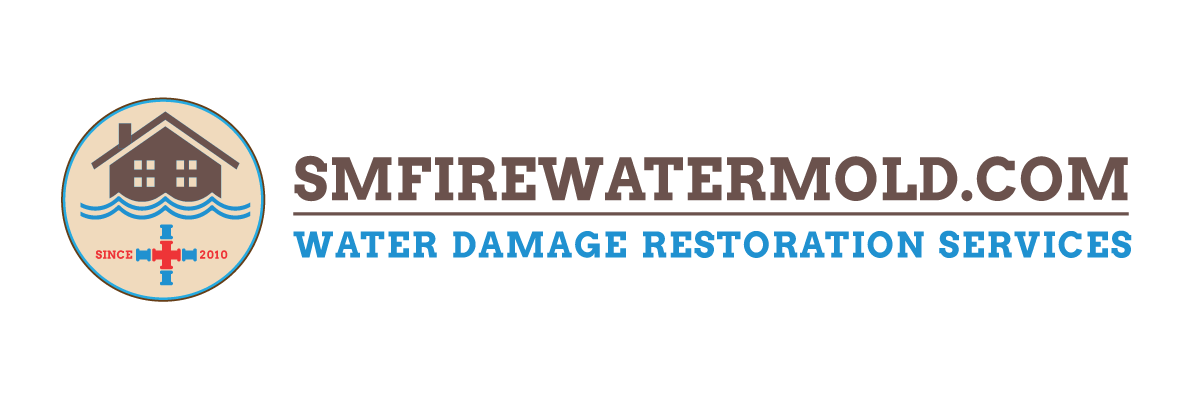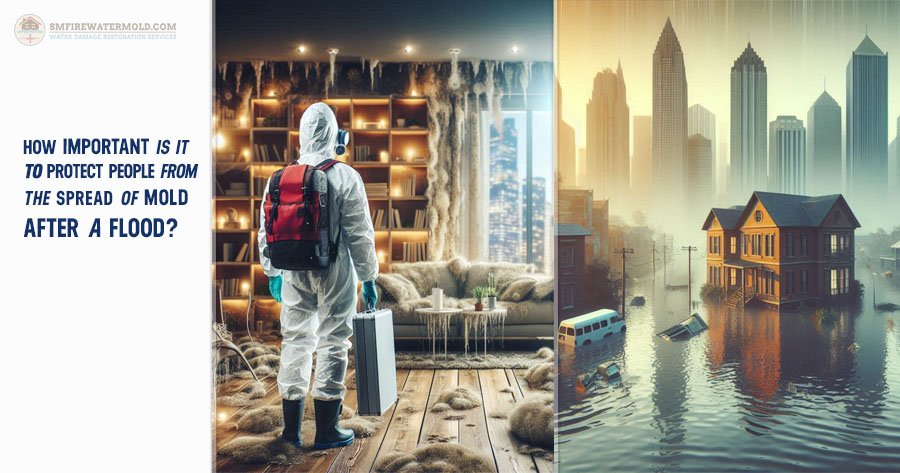Why Is Mold After a Flood So Dangerous?
Mold after a Flood… Floods leave more than just water damage. They create the perfect environment for mold to thrive. As a community, we must act quickly to protect our homes, health, and loved ones.
Mold can begin growing within 24 to 48 hours after a flood. It spreads fast and silently.
- Mold spores are airborne and invisible.
- They can trigger asthma, allergies, and respiratory infections.
- Children, seniors, and people with weakened immune systems are most at risk.
According to the CDC, over 75,000 hospitalizations and nearly 9 million outpatient visits occur annually due to fungal diseases. Mold is a major contributor.
We’ve seen firsthand how mold can compromise indoor air quality. It can also damage structural materials like drywall, wood, and insulation. That’s why mold remediation services are not just helpful—they’re essential.
How Can We Recognize the Danger?
Mold isn’t always visible. But there are clear signs we can watch for:
- Musty odors that linger even after cleaning.
- Discoloration on walls, ceilings, or floors.
- Peeling paint or warped surfaces.
- Increased allergy symptoms indoors.
- Condensation on windows or pipes.
We should also be alert to hidden mold. It often grows behind walls, under carpets, or inside HVAC systems. If we’ve had recent flooding, we must assume mold is present until proven otherwise.
What Are the First Measures We Can Take?
Acting fast is key. Here’s what we recommend doing immediately after a flood:
- Remove standing water using pumps or wet vacuums.
- Ventilate the space with fans and dehumidifiers.
- Discard porous materials like carpets, insulation, and drywall.
- Wear protective gear such as gloves, goggles, and N-95 masks.
- Call a professional plumber service to inspect for hidden leaks.
According to the EPA, mold cleanup should begin within 48 hours to prevent serious contamination. If we delay, the damage—and the cost—can multiply.
What Are the Signs of Mold in Homes or Offices (after a Flood)?
Mold doesn’t always scream for attention. But it leaves clues:
- Persistent coughing or sneezing indoors.
- Dark spots on walls, ceilings, or tiles.
- Warped wood or bubbling paint.
- Unexplained fatigue or headaches.
- Visible mold colonies in damp areas.
We mustn’t ignore these signs. Mold can affect our health and productivity. In office settings, it can even lead to legal liabilities.
Why Should We Turn to Professionals?
DIY mold cleanup has limits. Professionals bring tools, training, and experience we don’t have.
Here’s why mold remediation services for Atlanta and the metropolitan area are vital:
- Thorough inspections using moisture meters and infrared cameras.
- Safe containment to prevent mold from spreading.
- HEPA filtration to clean the air.
- Proper disposal of contaminated materials.
- Long-term mold treatment to prevent recurrence.
At Smfirewatermold.com, we’ve helped countless families and businesses recover safely. Our certified technicians follow industry standards to ensure complete remediation.
What Does the Data Say About Mold Victims in the U.S.?
The numbers are sobering:
- 47% of U.S. buildings have mold problems.
- 4.6 million asthma cases are linked to mold exposure.
- 93% of chronic sinus infections are mold-related.
- Up to 25% of people are genetically more susceptible to mold illness.
Mold doesn’t just affect buildings. It affects lives. The financial burden is also steep—mold-related illnesses cost Americans over $3.7 billion annually.
We can’t afford to ignore these facts. Prevention and early intervention are our best defenses.
Let’s Act Before Mold Takes Hold
Mold after a flood is more than a nuisance. It’s a health hazard and a financial risk. We must act quickly, recognize the signs, and seek expert help.
If you’re in the Atlanta area, don’t wait. Call SMFireWaterMold at 470-435-4377 or visit our Contact Page for support.
Want to learn more about mold and its effects? Check out this overview on Wikipedia.
Together, we can protect our homes, our health, and our future.

